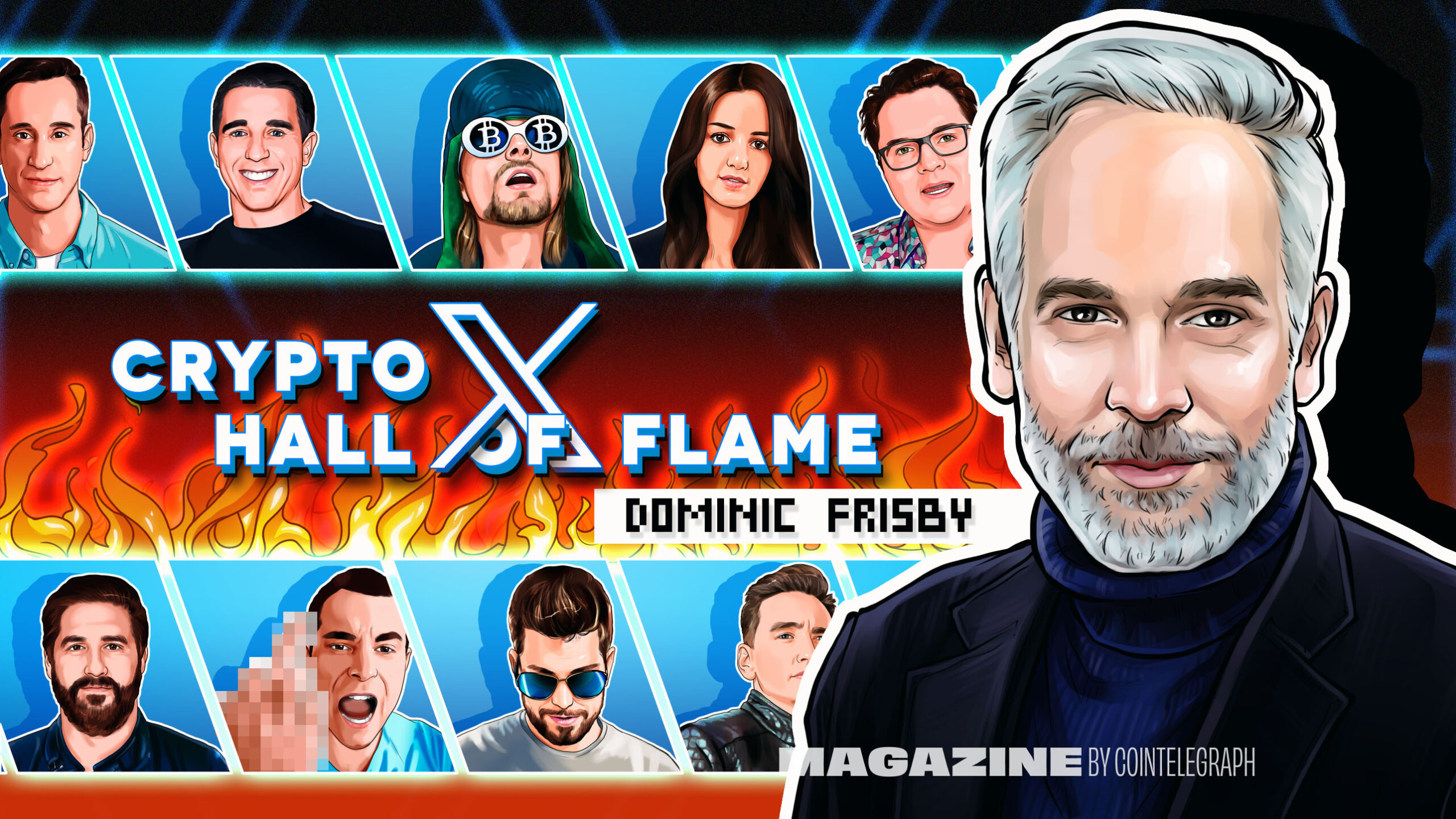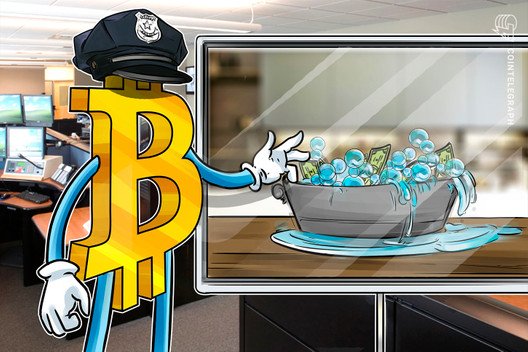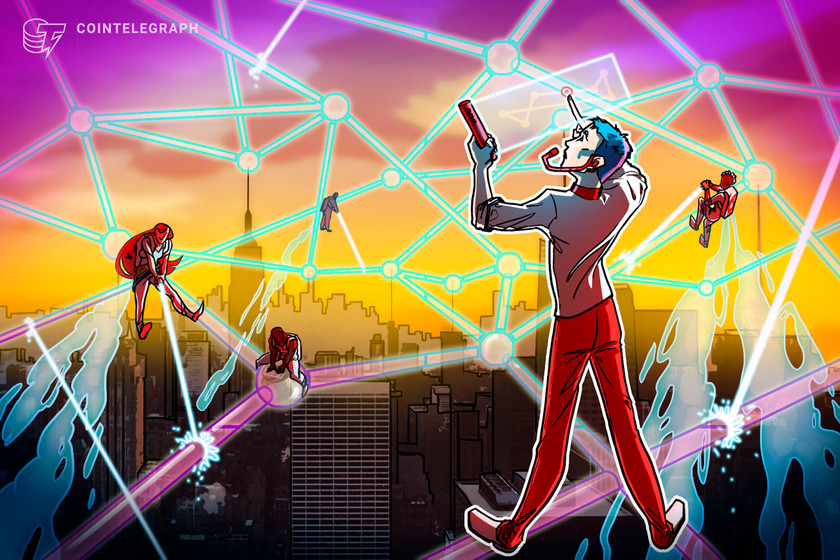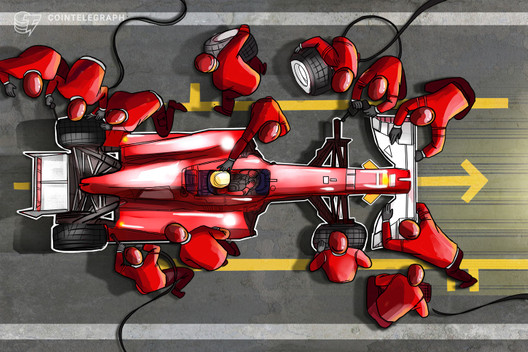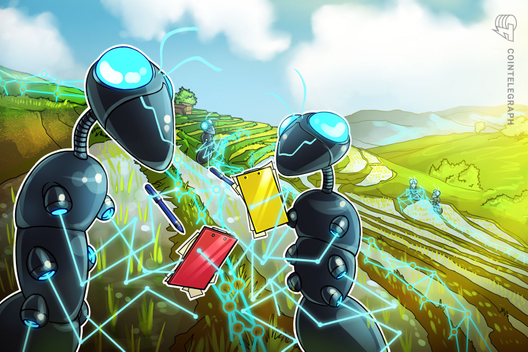The centralization of EOS has again emerged as a contentious issue within the cryptocurrency community, with the firm that created the EOSIO software, Block.One, participating in electoral procedures to choose the Block Producers for the EOS blockchain.
On Nov. 28, EOS Block Producer EOS New York tweeted screenshots of Whois search results that suggest that six of EOS’s total pool of Block Producers are managed by just a single entity, intensifying criticism of the network’s centralization.
EOS’s blockchain is secured using a delegated proof-of-stake model, with 21 Block Producers elected to operate EOS token holders to exclusively operate the network’s nodes. According to Block.One, EOS’s model offers improvements over proof-of-work systems, facilitating “the highest performance output with minimal energy requirements.”
As the maintenance and verification of EOS’s blockchain requires the coordination of a small network of nodes, Block.One claims that the network can produce block times of half a second and deliver a throughput capable of performing “more than 5,000 actions per second.”
Block.One participates in BP elections
On Nov. 13, Block.One announced that it will be participating in elections to delegate EOS’ Block Producers, describing itself as “a small but significant EOS token holder and an anticipated user of the EOS public blockchain” in possession of “less than 9.5%” of the circulation supply of EOS.
“Ultimately, we will begin participating in block producer voting to more actively join other EOS token holders in ensuring the EOS network remains as healthy and revolutionary as ever.”
The press release also emphasized that the share of circulation supply owned by Block.One “continues to decline as new tokens are created through inflation and are used to reward elected Block Producers that run and operate the network.”
Six BPs purportedly comprise a single entity
Tweets published by EOS Block Producer, EOS New York, have intensified concerns surrounding EOS’s centralization, with the BP appearing to have discovered that six of EOS’ Block Producers are, in fact, one entity.
The tweets include screenshots of Whois search results evidencing that the domains managed by EOS Block Producers stargalaxybp, validatoreos, eoszeusiobp1, eosunioniobp, eosathenabp1, and eosrainbowbp were registered by the same company operating under the name “fun eos” and based in Shenzhen, China. EOS New York also proposed removing the six BPs from the network. The message stated:
“This is unacceptable. We have requested the signatures of the top 50 registered producers so that all token-holders may know who does and who does not condone such impropriety.”
The co-founder of Ethereum, Vitalik Buterin, suggested that EOS introduce sharding to alleviate its centralization issues, tweeting in response to a Cointelegraph article:
“Honestly I think EOS should adopt sharding and assign each block producer to a random shard so that there are little-to-no gains from two validators sharing infrastructure as they’d have different data to validate. Would increase their TPS too.”
Weiss Ratings criticizes EOS
On the same day as Block.One’s announcement, Weiss Crypto Ratings took to Twitter to criticize EOS, accusing the network of having “problems with centralization” and recently failing to “process any transactions for anyone who doesn’t have a substantial amount of EOS locked up and staked.”
Weiss downgraded its rating for EOS in June, similarly citing “serious problems with centralization” as the catalyst for the downgrade. The firm had previously ranked EOS above Bitcoin (BTC) as the second-best cryptocurrency according to the criteria of “technology and adoption.” According to Jake Yocom-Piatt, the co-founder and project lead for Decred — a community-driven digital currency with built-in governance:
“EOS’ governance model was flawed from the start, and it’s allowing a centralized oligarchy and VC interests to profit short-term rather than build for the long-term. Governance shouldn’t and doesn’t need to be this way. It’s incredibly difficult to remove bad actors from power and supplant a bad model. While this model incentivizes gains for the few, governance can and should be built with ‘skin in the game’ for all involved and with a sustainable, enforceable spending model to last the long haul.”
EOS developers express centralization concerns
The issue of centralization has long plagued EOS, with Block.One Chief Technology Officer Dan Larimer previously stating that “decentralization isn’t what we’re after,” before emphasizing that the project is focused on providing “anti-censorship and robustness against being shut down.”
Related: Block.One Slapped With $24M Fine — Cost of Doing Business?
The concerns have been voiced not just by EOS critics, but developers building on top of EOS’ blockchain too. In August, Larry Sanger, co-founder of Wikipedia and chief investment officer of Everipedia — an online encyclopedia built on EOS — issued a warning regarding the geography of the network’s centralization:
“We cannot continue to build dapps on EOS if the network is de facto centralized in the hands of the Chinese. I’ve been making noise internally at EP about this since I learned about it earlier this summer. Sorry, but it can’t go on much longer, as far as I’m concerned.”
Despite his remarks, Sanger later clarified that Everipedia would not be moving away from EOS. At the time, roughly nine of the top 21 EOS Block Producers were based in China — nearly 43%.

According to EOSForce, this centralization could lead to collusion between BPs, who could trade votes to maintain their operation of EOS’ nodes. Data from EOS Authority gives weight to this claim, demonstrating that many top BPs share a vote confluence exceeding 80%.
Some analysts support Block.One’s electoral participation
John Todaro, the director of digital currency research at Tradeblock — a firm providing trading tools for cryptocurrencies — also emphasized the “long-standing” disquiet held by the crypto community with regard to EOS’ centralization, however, conceded that “a greater degree of centralization has allowed for greater scalability compared to similar networks.” Todaro told Cointelegraph that:
“Because block producers can still be voted off, there is some degree of continued decentralization in that various block producers can cycle in over time, limiting the degree to which a handful of entities can control the network.”
David Gold, the CEO of Dapix Inc., the company behind the development of the FIO Protocol — an EOS fork — offered support for Block.One’s decision to participate in BP elections, telling Cointelegraph that the community should see this as a big positive:
“As a significant but <10% holder of tokens, it is important that BlockOne does vote and support the best block producers in the EOS ecosystem. BlockOne has more knowledge than most of the ecosystem about the underlying EOS technology and is in a fantastic position to guide its further progress.”
Andy Cheung, head of operations at the cryptocurrency exchange OKEx, told Cointelegraph that the firm expects EOS’ centralization issues will be resolved with time, and predicted that Block.One’s electoral participation may influence Block Producers to be more active in meeting their governance responsibilities.
“Blockchain governance is a complicated task and controversies can quickly erupt when sides don’t see eye-to-eye. EOS is the most active blockchain in the world by a significant amount, and we truly believe that issues regarding centralization can be worked out, because rival sides certainly understand the potential of the technology. Lastly, we see a scenario where Block.One’s influence could lead to block producers more actively participating in their governance duties.”
EOS faces congestion issues
In addition to the ongoing narrative concerning EOS’ centralization, the network has suffered from congestion for approximately one month. The congestion has been attributed to the network’s EIDOS airdrop that took place on Oct. 31, with Coinbase subsequently reporting that it was forced to increase its quantity of staked CPU in order to process customers’ EOS transactions. Coinbase estimated that as of Nov. 8th, approximately 95% of EOS transactions were related to EIDOS.
Related: Research Claims EOS Network Can Freeze, Block.One Denies Any Errors
On Nov. 25, Earnbet, a decentralized application running on EOS, published a blog issuing a “30-day notice” that the company will leave the EOS network if the congestion issue is not solved within one month. In the post, the company asserts that “The EOS mainnet is in a sad state,” adding that many users are unable to access their accounts:
“The network requires around 30 EOS staked to an account in order to perform a single transaction each day. Once billed as ‘free transactions for all,’ effective EOS transaction fees now surpass even those of BTC. Instead of needing to pay $0.25 to transfer BTC, EOS users need to stake over $100 of EOS to make a single transaction on the network.”
Many from within the EOS community have criticized the EIDOS airdrop, with EOS Israel describing it as an “attack on the EOS network.”



